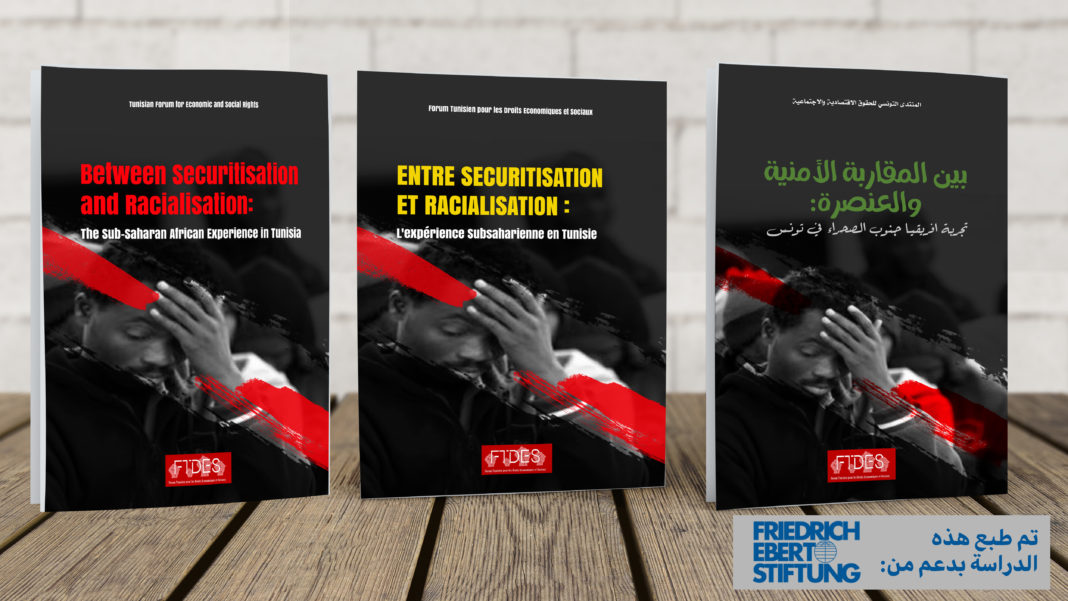By Yasmine Akrimi
This paper relies on two main prisms to analyse the precarious status of Sub-Saharan migrants in Tunisia: a broad one which relates to both the external and internal dynamics of the securitisation of migration in the country; a specific one pertaining to the racialisation of the Sub-Saharan African migration in Maghreb countries. Both aim to explain the status of Sub-Saharan African migrants as the most fragile category of migrants present in Tunisia.
The paper first argues Tunisia continued with the security paradigm imposed by the externalisation of EU’s borders post-2011 and the consequent criminalisation of migration. However, this approach, as it is the case in most transposition processes, is continuously subtly readjusted to fit local interests, mainly pertaining to legitimisation and control[1]. The consequences of the securitisation of migration is particularly visible vis-à-vis Sub-Saharan African migrants in the country. Secondly, migration securitisation is not the only prism through which to assess the extreme precariousness of Sub-Saharan migrants in Tunisia. This work will also explore the racial dynamics of Sub-Saharan presence, based on Edward Said’s Orientalism[2] and on Mustapha El Miri’s work on racialisation[3]. The term “Sub-Saharan African migrant” will be used to qualify black Africans and the term “irregular migrant” as a reference to both economic migrants and asylum-seekers
English
Frensh
Arabic
